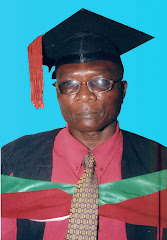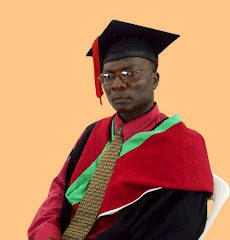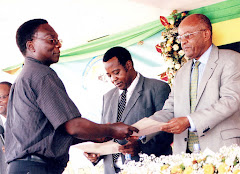A RENOWNED Professor of Swahili language and African Literature of the Open University of Tanzania, Professor Tigiti Mnyagatwa Sengo has cautioned media practitioners in the country on the use of improper Swahili words in their publications. He says that, “there has been an improper use of some of the Swahili common words by both print and electronic media organizations that distorts their real meaning especially when using them to illustrate their news stories”. He gives an example of the word “Mafisadi or Ufisadi”, as commonly used in newspapers, radios and television news productions. This is wrongly used whenever they describes few untrustworthy government officials who steals government money by signing dubious contractual projects for their own benefits. According to him, the correct word to be used in this respect should be written or pronounced as “Mafisidi or Ufisidi” for that matter, therefore, the word “Ufisadi or Mafisadi” is improperly used in this case as far as the meaning of an expression of this word is concerned.
 Professor Tigiti Sengo delivering a speech facing the audience who are not in the picture during the ceremony, seated on his right is the author a retired teacher Mzee Yusufu Halimoja (76). As an expert of Swahili language, he has challenged the media in proper use of Swahili language wherever possible.
Professor Tigiti Sengo delivering a speech facing the audience who are not in the picture during the ceremony, seated on his right is the author a retired teacher Mzee Yusufu Halimoja (76). As an expert of Swahili language, he has challenged the media in proper use of Swahili language wherever possible.Giving the actual meaning of the word “Mafisadi” as commonly used by all media organizations, Professor Sengo who is an expert in Swahili language says that, “the word means to refer people who practices immorality, prostitution, drunkards and other related mischief”. Prof. Sengo said media practitioners should be careful when writing and avoid such a grammatical mistakes, and if left without being rectified, would distort their real meaning and the use of Swahili language as a whole. However, he said adding that, Swahili language has gained an International status as it’s currently used in various International forums which takes place in the world. In view of this, media practitioners must defend its proper use wherever appropriate. Giving further examples in an exclusive talks, Professor Sengo illustrated the word “Taaluma” as being misused and distorted also. He says this should be significantly written or pronounced as “Taalimu” “The improper use of Swahili language and its oral grammar the media has been so notoriously misusing in their mass media is a positive distortion of the language for the future generation” he said, added that, it’s high time that media should take actions to defend the Swahili language to preserve Tanzanian culture. Professor Sengo threw the challenge last week in Dar es Salaam while delivering a speech in a short ceremony which was prepared in his honour during the lunching of his profile book which has been written by a retired teacher Mzee Yusufu Halimoja (76).
 Deputy Vice-Chancellor of the Open University of Tanzania (Academic) Professor Elifas Bisanda displays a 32 page book which describes the life of Professor Tigiti Sengo also of the University of Tanzania, when he had just inaugurated it in a special ceremony held recently at the University campus in Kinondoni.
Deputy Vice-Chancellor of the Open University of Tanzania (Academic) Professor Elifas Bisanda displays a 32 page book which describes the life of Professor Tigiti Sengo also of the University of Tanzania, when he had just inaugurated it in a special ceremony held recently at the University campus in Kinondoni.A 32 page book that describes the life of Professor Sengo since his childhood was launched in a colorful ceremony that took place at the main campus of the Open University of Tanzania, and officiated by the University’s Deputy Vice-Chancellor (Academic) Professor Elifas Bisanda. The ceremony was attended by some Swahili experts from various Swahili institutes in the country, Zanzibar and Kenya. Other dignitaries who attended the ceremony were some students whom Professor Sengo taught at the University of Dar es Salaam and who some are Professors and others are PhD holders Nicknamed as Shaaban Robert of today, the author has described Professor Sengo as a great man who has dedicated himself to promote Swahili language inside and outside the country and ranks the first Tanzanian who has written about 30 Swahili books. According to the available records, Professor Sengo’s most Swahili books are educational ones and are used by students from Primary and in Secondary levels, his books are used in Swahili literature both written and oral, and others to higher learning institutions. Born in 1945, Professor Sengo who is a Ph Degree holder was conferred to bear the prefix of being a full Professor in 1996 by the council of the Islamic University in Uganda and has taught in Tanzania and outside in country. He began his teaching career in higher learning institutions in 1973 at the then Dar es Salaam University College, and moved to some other Universities like Illinois (USA), Khartoum (Sudan), Helsinki (Finland), Warsaw (Poland), Stockholm (Sweden), Kenyatta (Kenya), Islamic University (Uganda), Zanzibar Government University (Zanzibar) and currently at Open University of Tanzania.

















